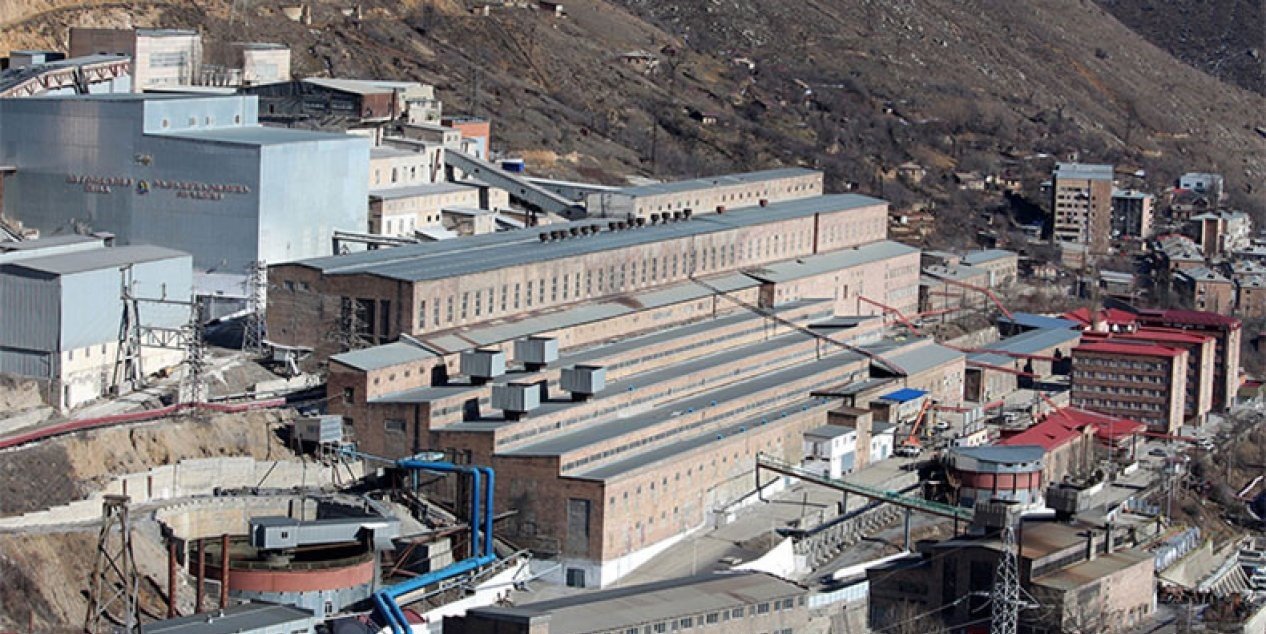
The Zangezur Copper and Molybdenum Combine CJSC (ZCMC) will probably stop working in a couple of days, the company's board member, candidate for MP from Hayastan bloc Vahe Hakobyan told reporters. "The plant has already suffered losses in the amount of more than 20 million. The export of ore is prohibited without any reason, which is fraught with negative consequences. Naturally, the inflow of foreign currency to Armenia will stop, affecting the USD exchange rate," the politician said.
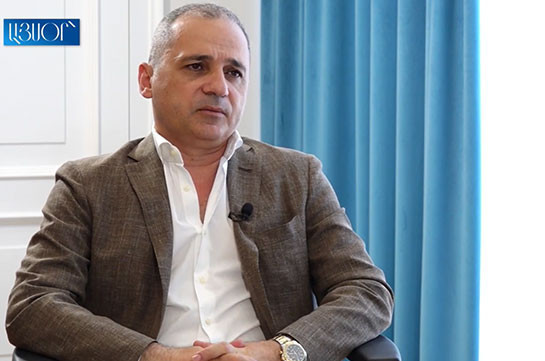
Earlier, Hakobyan, accusing the Armenian authorities of intending to close the plant, did not rule out that this is a "secret agreement with Azerbaijan." "Then they will call Syunik a colorless, unhappy region and hand it over to the Azerbaijanis, why not," Vahe Hakobyan said, noting that they want to expel the Armenians and destroy Syunik.
The head of the Goris community, Arush Arushanyan, spoke about the same. According to him, the latest arrests made by the current Armenian authorities are made to deal with political opponents and remove everyone who can prevent territorial concessions to Azerbaijan in the Syunik region. Arushanyan believes that these arrests are connected with the so-called "Zangezur Corridor," and the Armenian authorities, in his words, are doing everything so that no one can resist the pressure of Azerbaijan if it grows.
Of the eight copper-molybdenum deposits exploited today in Armenia, six are located in the Syunik region. Moreover, the Zangezur Copper-Molybdenum Combine, the largest in Armenia, is the leader in producing and exporting molybdenum and copper. According to the Armenian State Commission for the Protection of Economic Competition (SCPEC), the plant's share in this market exceeds 80%. Also, according to SCPEC, the Zangezur Copper-Molybdenum Combine owns Kajaran, one of the largest deposits in the Syunik region. Another large mine in the Syunik region is the Ankasar copper-molybdenum deposit, officially registered under Ler ex LLC. But, according to the electronic register, 100% of the authorized capital of this company belongs to the Zangezur Copper-Molybdenum Combine.
The Dastakert copper-molybdenum deposit, the Aygedzor copper-molybdenum deposit, and the copper-molybdenum mine in Lichk are also located in Syunik.
Copper ore is not processed in Armenia. It is fully exported to Bulgaria, Switzerland, China, Canada, and other countries.
About 90% of molybdenum exports go to the Netherlands and Russia. Molybdenum is also exported to Switzerland, Belgium, China, and other countries.
Zangezur Copper-Molybdenum Combine is the largest mining company in Armenia. In addition, Zangezur Combine is one of the largest taxpayers in Armenia, which paid more than 9.77 billion drams ($19.7 million) to the country's budget in the first quarter of 2021.
Copper ore accounts for a quarter of Armenia's exports. Ores and copper concentrates make 24% ($618 million).
Considering all this, the suspension of activities and even complete closure of the Zangezur Copper-Molybdenum Combine would truly threaten the Armenian economy. Here, you can't argue with Vahe Hakobyan. But what does Azerbaijan have to do with it?
In fact, as evidenced by Armenian sources, the plant's current problems stem from exclusively political reasons.

On June 15, the acting Prime Minister of Armenia Nikol Pashinyan, during the election campaign in Syunik, at a meeting with residents of Kajaran, noted that he was informed that ZCMC workers were banned from participating in his rallies under the threat of sacking. And the acting prime minister promised by July 15 to dismiss everyone who prevented citizens from participating in his rallies and assured that the Armenian people would have a share of the company.
According to analysts, Pashinyan has not forgotten how exactly the leaders and employees of one of the largest enterprises in the republic, the Zangezur Copper-Molybdenum Combine, acted against him. The fact is that there are many members and supporters of the Hayastan (Armenia) bloc of Robert Kocharyan among the management and employees of the plant. Even before the early parliamentary elections, he had already threatened the leadership of ZCMC for allegedly interfering in political processes.
"Zangezur Copper-Molybdenum Combine makes statements. I warned them several times not to try to force their employees into political processes. But they crossed all the red lines, and for this, they will get a blue hammer on the head. Complain or not, your issue has been resolved, Zangezur Combine," Pashinyan said then.
After the elections, apparently, the time has come to fulfill the "pre-election promises."
On July 12, it was reported that the Armenian government approved a draft amendment to the law "On State Duty," according to which additional duties are established on the export of copper and molybdenum concentrates in the amount of approximately 15% of the exchange value of these metals.
The plant was searched with the participation of the National Security Service special forces. After that, several employees were taken to law enforcement agencies. However, the reason behind such actions is not named, the Armenian media wrote.
According to the ex-governor of Syunik, Vahe Hakobyan, there is political persecution: "Searches took place in the offices of a lawyer and employees of the energy department. Nothing was found as a result of the search at the plant. I assess this as political persecution; there is no other description. Probably, the current authorities did not digest that Kajaran was the only city where they lost."
Hakobyan also expressed the opinion that the authorities are pursuing commercial goals as well: "They want us to sell the plant. I know that there is a buyer whose name is kept secret by the authorities. They are tirelessly forcing us to sell the plant".
It is unlikely that the "mystery buyer" is Azerbaijan. The claims of the Azerbaijani side to ZCMC are of a completely different nature.
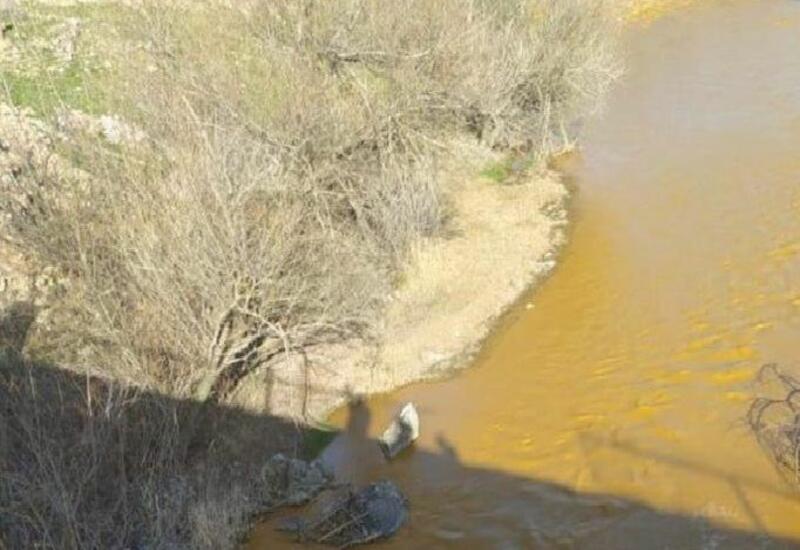
At the end of June, after receiving the results of analyzes on water samples from the transboundary Okhchuchay River, the Azerbaijani Ecology and Natural Resources Ministry announced that the Zangezur Copper-Molybdenum Plant, the main shareholder of which is the German Сronimet Mining company, engaged in mining at the Kajaran mine, poses a severe threat to the environment and human health, polluting the river on a catastrophic scale.
The river, most of which is now located in Armenia's Syunik region (the historical Zangezur region of Azerbaijan), flows through Azerbaijan's liberated Zangilan district into the Araz River.
The Okhchuchay River is constantly polluted in Armenia by wastes from the Kafan and Kajaran mining industries, becoming a collector of industrial waste. These industrial wastewaters are discharged into the river untreated, which increases the level of pollution several times. Therefore, the river's water is considered unsuitable for use in the territory of Azerbaijan.
Taking this into account, the Ministry of Ecology and Natural Resources has appealed to international organizations due to the critical state of the Okhchuchay River, to inform them about the predictable environmental risks for the river and its ecosystem due to prolonged pollution from Armenia, as well as to suppress the contamination.
German Cronimet Mining (60%), Yerevan Pure Iron Plant OJSC (15%), Armenian Molybdenum Production LLC and Zangezur Mining LLC (12.5% each) are officially the shareholders of the Zangezur Copper-Molybdenum Combine.
In this regard, Azerbaijani journalists sent an appeal to the German Embassy and the German Foreign Ministry with a request to comment on the situation. The response was that "the German company sold its share to local investors at the end of 2019."
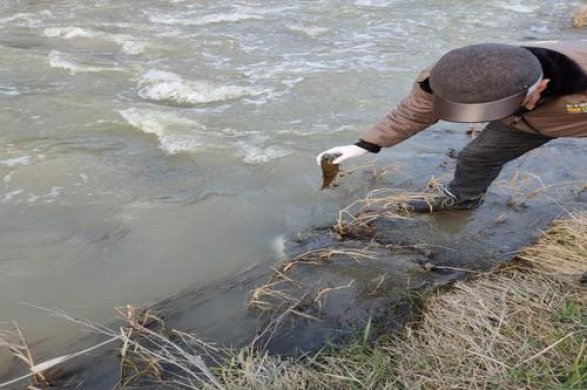
As noted in the investigation of the Armenian NGO EcoLur, according to the declaration submitted in mid-2020, Zangezur Copper-Molybdenum Combine CJSC owns 62.5% of the shares issued by the company. And who exactly they belong to is also unknown.
As a result of the monitoring carried out at different times - in high water and at low water levels - it was found that the content of heavy metals during the whole year was much higher than the norm.
Azerbaijan's claims to the Zangezur Combine are purely ecological in nature and cannot in any way affect its future fate. Moreover, the plant management has officially thrown off responsibility for the problematic environmental situation associated with the pollution of the Okhchuchay River.
It is impossible to blame Azerbaijan for the allegedly far-fetched problem and "pulling" it to the current situation around Zangezur. A few years ago, Armenian ecologists themselves sounded the alarm about the impending ecological catastrophe.

The Armenian Environmental Front (AEF) in 2014 turned to the activities of the Zangezur Copper-Molybdenum Combine. The largest field exploited in Armenia is located in Kajaran. It is operated by the Zangezur Copper-Molybdenum Combine, has one operating tailings dump - Artsvanik and three closed ones. The settled water from the tailings dump enters the Norashenik and Khalaj rivers and further into the Voghji (Okhchuchay) River. There seems to be no inspection body.
Two years ago, the Armenian media wrote that the Artsvanik tailing dump, created for the waste of the ZCMC, became a real headache for the adjacent communities. For a long time now, environmentalists have warned about hazardous waste coming into the environment from the tailings, but the problem remains unresolved.
Ecologist Inga Zarafyan visited the communities adjacent to the tailing dump two weeks ago. She says that as a result of the tailings waste, not only the environment is damaged, but also the health and social situation of the villagers, which is already difficult.
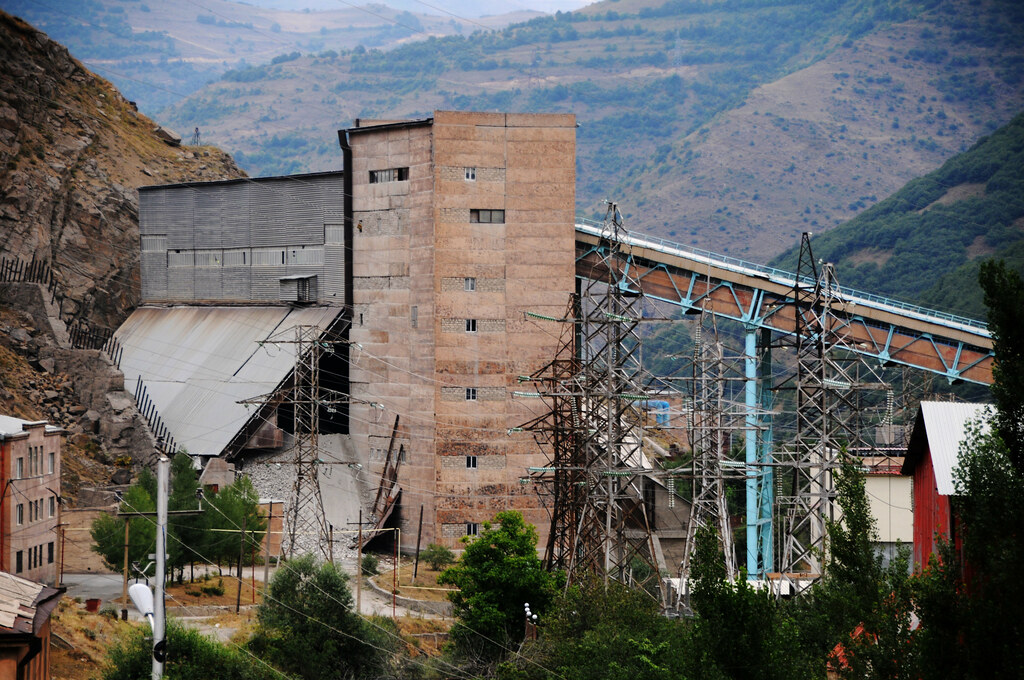
In October 2019, as a result of an accident in the metal pipeline of the Artsvanik tailing dump of the Zangezur Copper-Molybdenum Combine, waste fell into the Voghji River. "The river is brown at the moment," said Levon Petrosyan, head of the Syunik territorial department of the inspection body.
The second largest river in Zangezur, Voghchi, due to the activity of the industrial zone, has become unsuitable for irrigation. Fish also do not live in it, the newspaper notes.
The problems that Vahe Hakobyan and others talk about are solely due to domestic political issues.
It lets us conclude that the accusations of the Armenian side are groundless and do not correspond to reality.




















